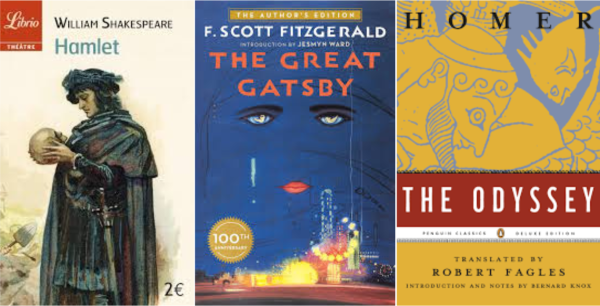Christmas – Who Stole it Best?
MGM Animation/Visual Arts, Universal Studios, and Illumination Entertainment
The three adaptations of How the Grinch Stole Christmas
Since its creation, the tale of the Grinch has been exceedingly well known,
And, over each decade, its popularity has consistently grown.
Of this story Hollywood has created a couple of new versions,
Leading some to nostalgia and others to aversion.
Many say that only the 1966 rendition is worth it – they swear it!
And yet I can’t help but feel as though each version has merit…
They may not be perfect, they may not be needed,
But they bring forth something inside us that is deeply seeded.
They tell us a simple tale, always the same at its core,
That Christmas, perhaps, means a little bit more…
Well, now that I’ve gotten the obligatory rhyming out of the way, I’d like to first address the most recent cinematic iteration of our classic Christmas tale known as Dr. Seuss’ The Grinch (2018).
Before this film was initially released, it faced criticism for just how unnecessary it seemed. Being the third interpretation of the book put to film, it was difficult to predict whether or not Illumination, the animation company responsible for the movie, would play things safe or surprise audiences with a new and interesting take on the story. The result was, for the most part, the latter. The storyline of the film is simple and closely follows the basic pattern of the previous installments and book. However, it does make attempts to flesh out certain characters and plot lines, including the Grinch’s backstory.
Does it work?
I wouldn’t say that it adds as much as the writers clearly hoped it would. What makes the Grinch such an iconic character in the original story is that he is specifically written as an eccentric grump who hates Christmas for no apparent reason. His loathing toward the joy of others ties into his lack of understanding of the holiday. He views Christmas as an event trivial enough to be completely destroyed when its material elements are taken away, but learns that this simply isn’t the case. I personally feel as though justifying the Grinch’s hatred toward Christmas with a backstory takes away from that.
One especially strong criticism of the film is also the characterization of the Grinch himself. Critics and audiences have argued that he’s not mean enough in this portrayal and I’d have to agree. He has his brief moments of cruelty, sure. But for the most part, you can generally tell that he’s lying to himself about his hatred toward Christmas.
Despite all of these shortcomings, however, I do have to say that this film does have its positives. The animation is gorgeous and articulates the Suess art style nicely. The various gadgets that the Grinch uses throughout the film are extremely creative and the scene where he actually steals Christmas is executed in an incredibly imaginative way. Best of all, is the ending scene which is the most heartfelt moment in the entire film through its simplicity alone.
Yes, this film is unnecessary beyond all reason, but because it does manage to offer short but unique glimpses into what made the original story so special, I wouldn’t say that it is a complete loss.
Next, we come to the ever confusing, ever controversial, and ever beloved live action adaptation of How the Grinch Stole Christmas (2000). This one is definitely an enigma. Some consider it a holiday classic while others view it as a clear bastardization of the source material. I’m still not entirely sure where I fall on that spectrum. Beginning with a major positive aspect of the film, I must applaud Jim Carrey’s performance as the Grinch. Love it or hate it, Carrey’s interpretation of the iconic character is unique in that it manages to be similar to the original and yet completely transformed to better fit the tone of the film. Additionally, Carrey’s ability to work with such a difficult costume and make it seem incredibly convincing is another point of praise. I really wish I could say the same about the writing for this character. Once again, the Grinch is given a backstory.
It is established that he despised Christmas from the very beginning, attempted to participate in it one year as a child, and was humiliated to the point of completely turning his back on not only the holiday but the entirety of what it stands for. This definitely makes the character feel more sympathetic, but as I said before, I really don’t think that the Grinch needs this sort of development. The same applies to the Whos in this adaptation. They are portrayed as being caught up in the consumerism of the holiday season and blinded to its true meaning and value. In a way, they are similar to the Grinch, having forgotten what Christmas means. Once again, I don’t think this is as powerful as having the Whos understand and love Christmas unconditionally as in the original story. In that case, they are a perfect juxtaposition to the Grinch and do not need to learn any sort of morals to prove how powerful the meaning of Christmas is. Of course, I do understand that the live action story itself needed to be fleshed out a bit to qualify as a feature film. I just feel as though it could have been handled better.
As far as the visuals go in this film, I feel especially torn. The set design feels like Dr. Seuss and so do many of the visual effects. The faded colors and Vaseline smeared over the camera lens do not. The tone and humor of the film is another point of contention. Some moments are genuinely funny and charming, others make you question what the writers were smoking while they typed away at the script. Whether or not the film is actually enjoyable really depends on one’s specific tastes. It has a lot going on for being a film based on such a simple story. You might find yourself asking the same thing Cindy Lou wonders early on in the film – “Doesn’t this seem… superfluous?”
Finally, we arrive at the definitive 1966 adaptation that follows the source material as closely as possible.
It’s simplistic, it’s short, it’s iconic, and it simply cannot be replicated.
It doesn’t muddle up its message with random additions. It doesn’t force any particular morals on the audience. It doesn’t try to look particularly exciting or flashy through its animation. It’s as simple as it could be and that is what makes it so special. It encapsulates what I believe made the story of the Grinch so popular in the first place. Through its simplicity it manages to be profound in a way that everyone can understand. It’s accessible. It alienates no one and respects its entire audience. It chooses to tell a simple story above anything else, and it wholeheartedly succeeds. For all of these reasons, this will always be the truest and greatest adaptation of the How the Grinch Stole Christmas.
While there are positives to be found in each version of the story,
This one, by far, deserves all the glory.

Madeline Phelps is a senior currently attending Arroyo Grande High School, from a distance, of course. When she isn’t doing schoolwork or sitting around...






